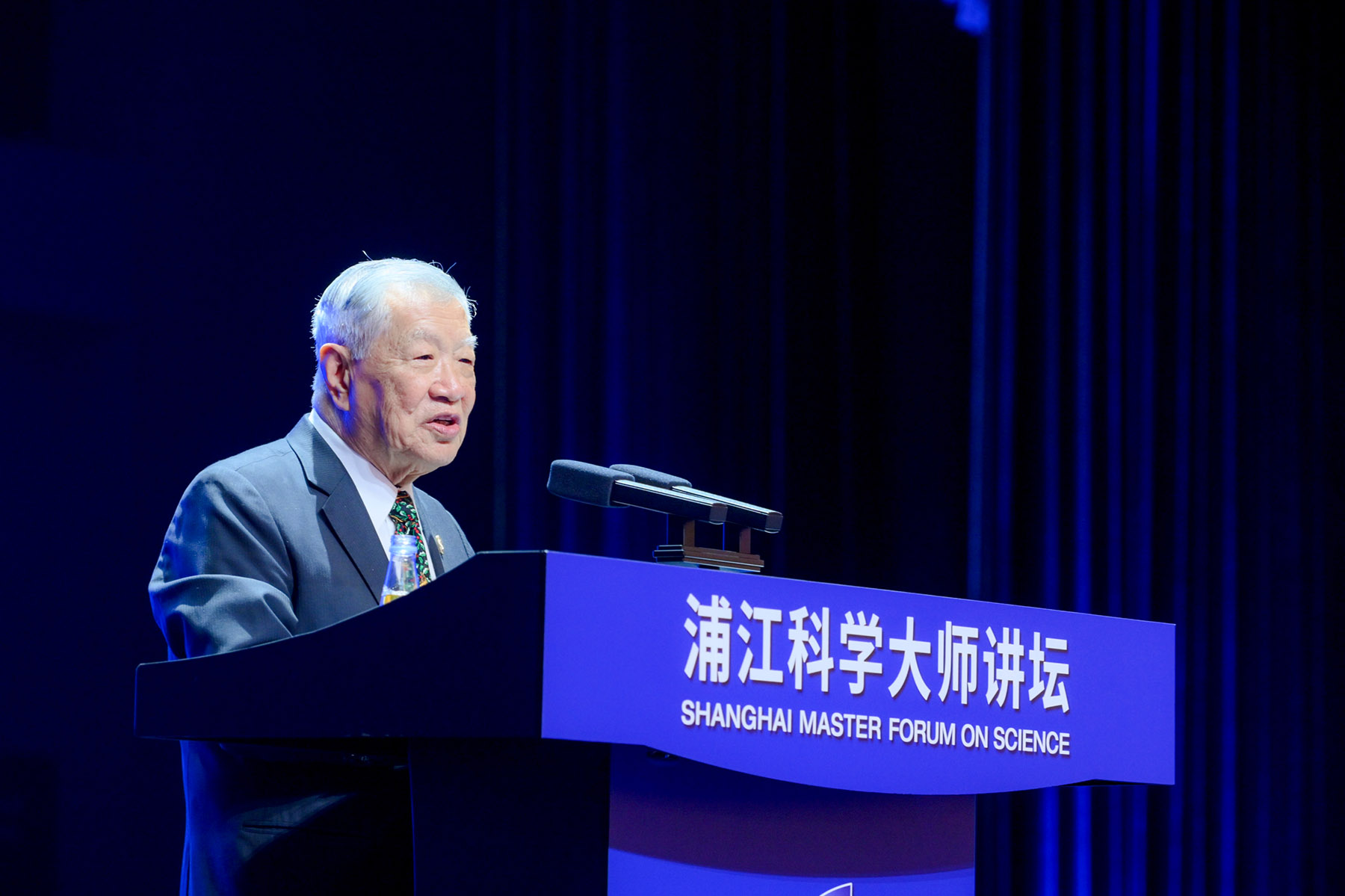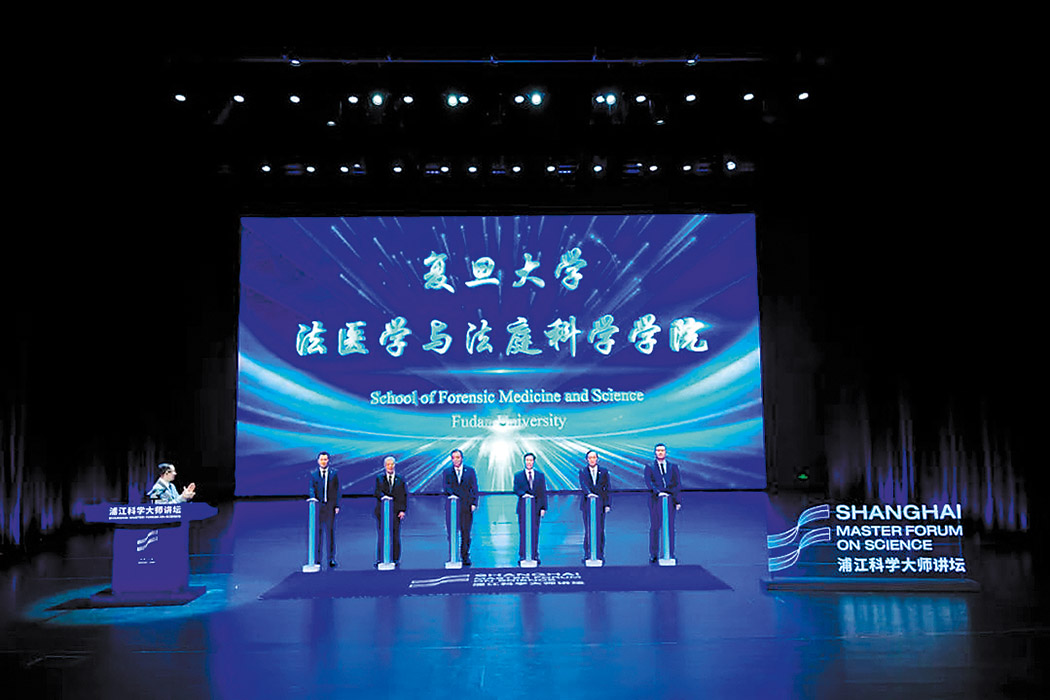With a stellar career and honorary professorship at Fudan University, Henry C. Lee maintains his principles and remains humble, Zheng Zheng reports in Shanghai.

Even at 88, world-renowned forensic scientist Henry C. Lee is ready to open a new chapter in his long, lustrous career.
On June 7, Fudan University inaugurated its School of Forensic Medicine and Science during the Shanghai Master Forum on Science, marking the occasion by appointing Lee as an honorary professor.
Following his appointment, Lee will guide the development of the school as an internationally acclaimed expert who has dedicated himself to advancing forensic science for decades.
Forensic medicine and science play a crucial role in social governance, including disaster response, legislative guidance, and criminal and civil trials. As one of China's first institutions to establish a forensic science program, Fudan University has long supported national law enforcement and public security initiatives.
Building upon the existing forensic medicine department and the Institute of Forensic Science, the new school aims to cultivate innovative professionals with global vision and social consciousness, contributing to the advancement of China's legal system.
READ MORE: Fudan sets new scientific standards
Lee showed remarkable vigor during the forum, sharing insights from his 65-year career during a 90-minute presentation.
"I am turning 90. Many of my friends this age can barely move. Yet here I am, still traveling and speaking with my young friends in China," Lee says with a smile.
Although Lee is often dubbed the "modern-day Sherlock Holmes" by others due to his expertise in more than 8,000 cases, he remains humble. "I am just an ordinary person who simply lets science and evidence speak for themselves," said the scientist.
Born in 1938 in Rugao, Jiangsu province, Lee embarked on a journey to become a world-famous forensic science pioneer. This is a path that embodies the principles that he advocates — purpose, passion, hard work, knowledge, persistence, and belief.
Lee is the 11th of 13 children who all experienced early hardships when their father passed away.
His mother raised all of the children to become successful professionals.
Life took an unexpected turn when Lee, aspiring to become a ship captain, enrolled in a police school in Taiwan due to financial constraints.
"I almost became an actor at one point, but my mother opposed it," Lee recalls with amusement.

In 1965, he went to the United States for further education, completing a four-year college program in just two years. While pursuing his first doctorate, he held three jobs — server, student, and kung fu instructor. "I put tremendous effort into my first doctorate, yet I have received over 30 honorary doctorates with far less toil ever since," he says, drawing laughter from the audience.
Lee achieved his professional breakthrough by pioneering the application of scientific evidence in criminal convictions and introducing DNA analysis to criminal investigations. He has consulted on over 8,000 cases across 47 countries and regions, including several historically significant investigations, such as the Wood Chipper Murder case, the JFK Jr. aircraft accident, and the O.J.Simpson criminal trial. Throughout his career, Lee has upheld rigorous scientific standards, letting the evidence speak regardless of public pressure.
His fundamental principle remains unchanged — make the impossible possible. Lee has broken numerous barriers to become Connecticut's first chief criminalist and the first Asian in US history to hold a state-level police chief position. At the same time, he has received over 800 honorary awards. The Henry C. Lee Institute of Forensic Science at the University of New Haven in Connecticut stands as testament to his contributions.
The pioneering forensic scientist has long observed the field's significant evolution. "When I first started, forensic scientists needed to know a bit of everything, from autopsies to toxicology, DNA analysis to fingerprinting. Nowadays, forensic scientists have become highly specialized, like those of other scientific disciplines," he explains.
He also notes that women now make up about 70 percent of forensic scientists in the US, a significant departure from the field's traditional gender norms. The male-to-female ratio of the forensic medicine major at Shanghai Medical College of Fudan University reached approximately 1:1, according to a report last year from local media Xinmin Evening News.
Looking ahead, Lee acknowledges the impact of artificial intelligence but emphasizes that human expertise remains essential. "Artificial intelligence has many practical applications in forensic investigation, from evidence identification to crime scene reconstruction. However, human wisdom and experience remain irreplaceable in scene analysis and case evaluation," he says.
He also envisions breakthroughs in DNA technology. "Perhaps one day, a single drop of blood could not only reveal the identity of its donor but also his or her facial features, age, and even fingerprint patterns," he says, predicting a future of integrated forensic identification and anticipating the comprehensive convergence of DNA analysis with other biometric identifiers.
For the younger generations, Lee offers both encouragement and caution. "In this era, social media is filled with prevalent fake news and cybercrimes, thus forensic professionals face greater pressure. If you choose this path, be prepared to stand firm in your principles."
Contact the writer at zhengzheng@chinadaily.com.cn


